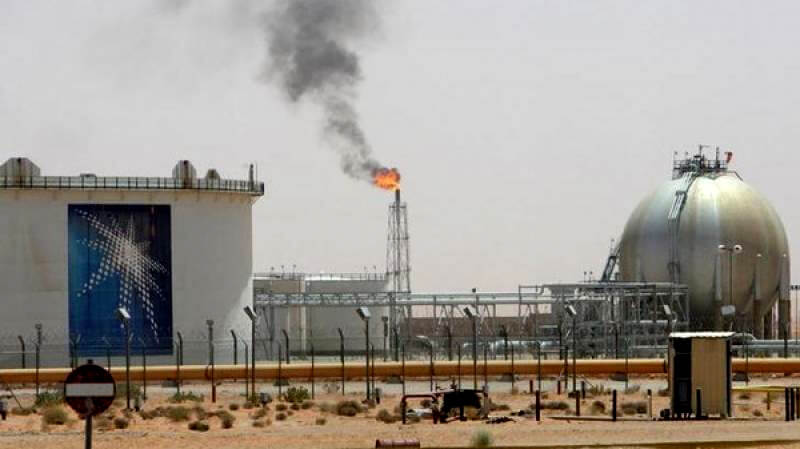Australia/Israel Review
Standing up to oil market terrorism
Oct 2, 2019 | Mark Dubowitz and Brenda Shaffer

The global oil market lost more supply on September 14 than on any single day in its recorded history. As soon as the markets opened, prices spiked more in one day than at any time since 1991. All of this from a single attack allegedly by the Islamic Republic of Iran on Saudi Arabia’s main oil processing facilities. This is a stark reminder that the United States cannot afford to ignore the security of the Gulf and its shipping lanes despite America’s newfound status as an energy superpower.
While the full details of the attack are still emerging, Iran has two main goals. First, it wants to force the Trump Administration to pull back from its “maximum pressure” policy, which has plunged Iran into a deep recession, inflationary spiral, and currency crisis. Second, the mullahs want the fear of an oil-driven global recession to push European and Asian countries to resume the purchase of Iranian oil in defiance of US sanctions.
Iranian provocations began to escalate in May, with disabling attacks on foreign tankers, the downing of a US drone, and even taking hostage a British-flagged tanker. Attacks designed to scare the oil market are likely to continue. As a result, oil prices are likely to remain elevated for several weeks, if not more. In the short run, one of the major beneficiaries of the Iranian attack is Russia, which will get a revenue boost from higher oil prices and is best prepared to grab greater market share, with Saudi Arabian production halved.
Looking ahead, there are three main lessons to learn from the Sept. 14 attack. First, Saudi Arabia’s critical infrastructure is vulnerable, a weakness common to many other oil installations around the globe. Many of these installations are operated by commercial companies, whose coordination with government defence and security forces is often quite poor.
Second, even though it has rapidly risen to become the world’s top oil producer, the US is not immune to the effects of higher oil prices, including a possible global recession. American oil-producing regions like Texas, North Dakota, and Pennsylvania among others will get an economic boost from the price surge, yet many Americans will be worse off. Sustained high oil prices frequently trigger recession. The only factor that has held the oil price from jumping even higher seems to be the weak global demand for oil, itself a sign of a potential emerging recession.
Third, the attack underscores a reality too often ignored by US President Donald Trump: only the US military can guarantee the free flow of Middle Eastern energy to the global market. Washington’s allies can and should do more to help, but American forces are in a class of their own. Plus, taking the lead is in America’s interest, because a global recession will hit the US economy hard.
At times, previous administrations have tolerated the Islamic Republic’s provocations in the Gulf, hoping restraint would prevent a direct conflict. It never worked then and is not working now. During the last six months, Iran has attacked vessels in the Gulf and made transit insecure. Other than a reported US cyberattack, Iran has not paid a significant price for its aggression. Predictably, Teheran remains undeterred.
The US and its allies should therefore expect more attacks, whose target may be a major oil facility in another country, for example the UAE or one beyond the Gulf. Teheran may use its own forces or its proxies (including Lebanese Hezbollah, Iraqi Shi’ite militias or the Houthis in Yemen) to carry out the next operation. Other producers need to prepare. Since oil is traded globally, knocking out substantial production anywhere will help achieve Iran’s goal of higher prices. Still, prices remain moderate for the moment, at US$65-$70 (A$95-100) per barrel for Brent crude, whereas prices topped US$100 on several occasions in 2014.
To limit the upwards pressure on price, Trump announced his administration would work to relieve pipeline bottlenecks within the US. This could provide important relief to the market, but it is not clear whether the government can actually facilitate change, and certainly not quickly.
In addition, the US should work with oil- and gas-producing allies to improve the security of their infrastructure. Iran’s ability to disrupt the Gulf’s sea lanes affects the natural gas trade as well, since liquid natural gas moves by sea. The new growing global liquid natural gas trade enhances global energy security, but also creates a whole new set of security challenges, for which the US needs to develop a strategy.
As both an energy and military superpower, the United States is best positioned to guarantee the free flow of energy, continued global prosperity, and enhanced stability in the world’s most volatile region.
Mark Dubowitz is the CEO of the Foundation for Defense of Democracies (FDD) in Washington, D.C. Prof. Brenda Shaffer is an international energy expert, and the author of the book Energy Politics. © FDD (www.fdd.org) reprinted by permission, all rights reserved.
Tags: Iran, Persian Gulf, Saudi Arabia






